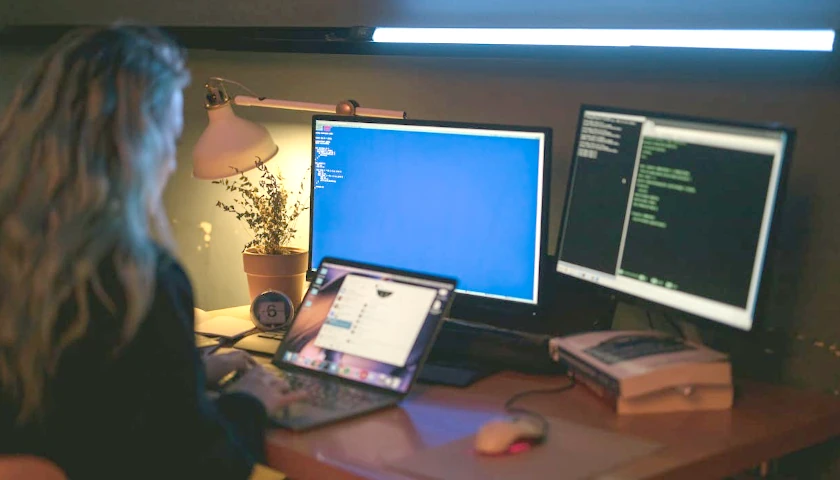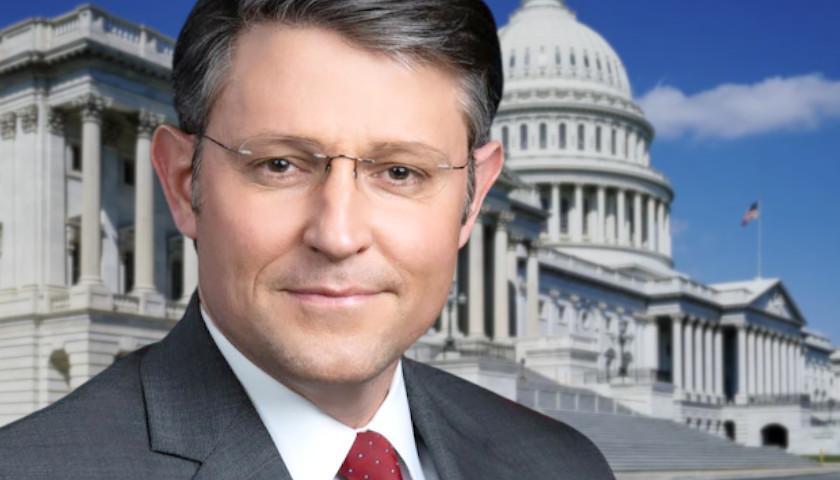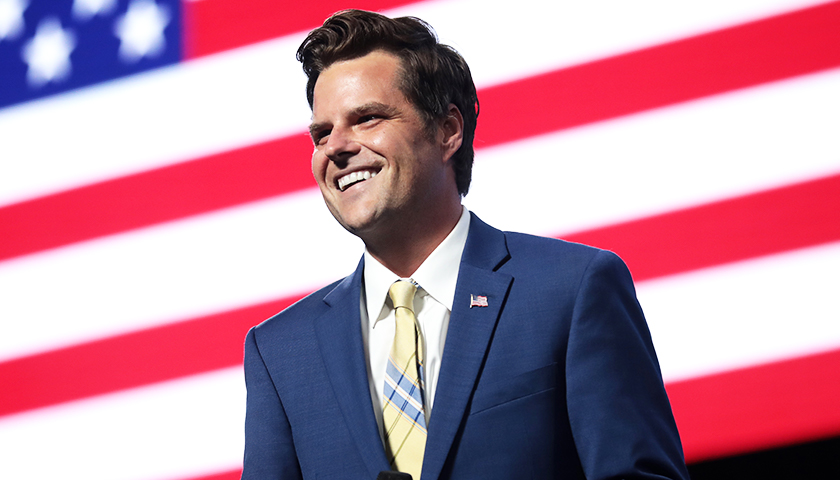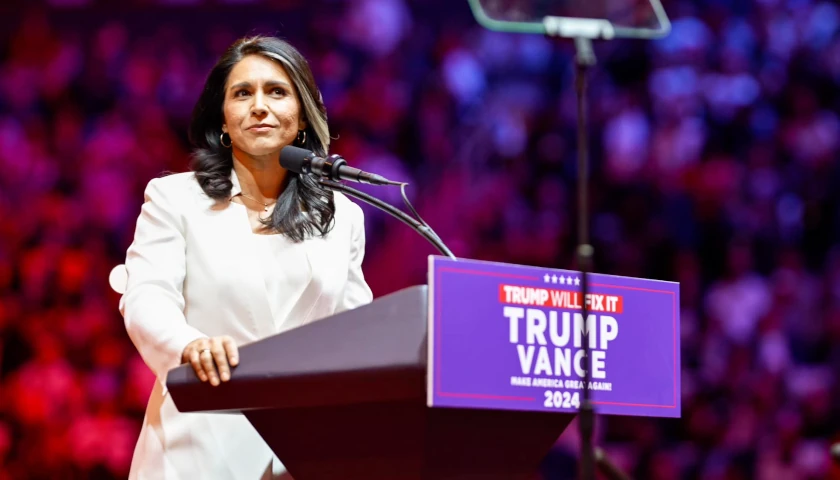by Paul Kengor
In recent weeks we’ve seen multiple stories involving the two leading presidential candidates — Joe Biden and Donald Trump — signaling the rising dangers of Artificial Intelligence and related technology during an intense campaign. The examples run from alleged misinformation and video distortion to flat-out false imagery. The warnings are certainly apt.
Sure, AI has the potential for great benefits, whether in the healthcare field or even something like your GPS, but it also holds potential for terrible misuse in politics. Specifically, to get technical, it’s the so-called “generative AI” that can be directed to produce bogus human voices, imagery, text, and video. It can be used to create some of the worst “fake news.”
To that end, one shudders to think how AI might be abused during an election campaign, or worse, the very morning of an election — such as this coming November 5, 2024. The destructive potential is significant.
To be sure, the most recent case of alleged video distortions — regarding Joe Biden — were highly dubious. Recall the claims a couple of weeks ago by the likes of White House Press Secretary Karine Jean-Pierre and MSNBC’s Joe Scarborough and the outrageously left-wing-biased Associated Press, just to name a few of the usual suspects. According to Jean-Pierre, viral videos showing an addled, confused Joe Biden, vigorously promoted by the Republican National Committee’s research team, were “cheap fakes.”
Ms. Jean-Pierre’s assertions laughably and instantly fell flat, as the vast majority of Americans have seen enough footage of the aging president to know that the man genuinely appears to be teetering on dementia. There was the footage showing Biden staring aimlessly at the D-Day memorials in France, frozen in temporary bewilderment at fundraisers with celebrities like George Clooney and Julia Roberts, wandering off alone as Italy’s Giorgia Meloni motheringly guides him back to the press fold at the G-7, or on a stage with the younger Obama caringly shepherding a confused Biden in the right direction.
And then, of course, came last week’s historic, utterly unforgettable, game-changing presidential debate. A nearly catatonic President Biden made clear to all of America that any suggestion that videos need to be manipulated to show him mentally unfit is pure bunkum. Every sentient American now knows that Joe Biden is too old for the job. He should not be running again.
Maybe we should all be on the alert for fake AI videos orchestrated in defense of Biden by the Democratic National Committee. Perhaps a “cheap fake” of Sleepy Joe hitting a golf ball 50 yards. Take that, Trump!
That aside, whether the likes of Jean-Pierre’s original doubled-down claims were valid is actually beside the point. My point here is that the penchant for political fraud with video manipulation via AI is very real. It could dramatically impact an election.
AI in the Presidential Election
As an example of that potential, researchers at the University of Washington and MIT have created fake voice and video imagery of Barack Obama. The University of Washington “fake Obama” simulation actually occurred six years ago. Thus, this new technology has been around, though it’s now improving and growing, rapidly. The more recent MIT case struck me because the video purports to show “Obama” endorsing the MIT professor’s computer course. It made me think: What if a Republican fraudster produced on the morning of November 5, 2024 video of a faux “Obama” endorsing, say, Robert F. Kennedy Jr., or one of the left-wing presidential candidates, instead of Joe Biden, with the intent of pulling votes from Sleepy Joe that day? That’s quite plausible.
Sure, Barack Obama and the Biden campaign would scramble to denounce the video as phony, but perhaps not before the video went viral and cost Biden crucial votes in a close election.
The potential to damage the two leading candidates swings both ways. And that brings me to Donald Trump.
Trump two-and-a-half weeks ago talked to podcaster Logan Paul about AI. Trump noted two things that particularly jump out.
First, on the plus side of AI’s potential, Trump said that one of his “top people” when he was president once talked to him about an upcoming speech and then, “He goes click, click, click, and like 15 seconds later he shows me my speech, written so beautifully, I said, ‘I’m gonna use this sucker.’”
That was a weird statement, probably exaggerated and fairly harmless (though as a writer who has done speechwriting, I detest the notion of computers crafting speeches). Trump’s next statement was anything but.
Trump added that he was recently presented with a fake video of him promoting a product. The fake was so professionally done that Trump himself couldn’t tell that it was a forgery: “The voice was perfect, the lips moved perfectly with every word,” explained Trump. “If you were a lip reader, you’d say, ‘it’s absolutely perfect.’”
Trump told Logan Paul that this technology is downright “scary” because of national-security implications. He conjured up fabricated imagery of a sitting U.S. president asserting that “13 nuclear missiles” had just been launched against an adversary and would strike in 13 minutes. Trump told Paul that he had asked Elon Musk if an adversary like China or Russia could immediately know “that’s not really President Trump.” Musk told him, no: “there is no way.”
Those are Donald Trump’s hypothetical scenarios. Now imagine this one, concerning Trump in the November 2024 campaign:
We now know that the claims by liberals — the great election deniers — that Donald Trump in 2016 colluded with Vladimir Putin to steal the 2016 election from their beloved Hillary Clinton were fraudulent. The whole Russia dossier and “golden shower” narrative was a nasty hoax. We also knew that exposing that scam took years and millions of dollars in federal government time and money, with the Mueller Report eventually exonerating Trump, but not before every liberal and millions of Americans took the Left’s screaming hysteria as truth.
But imagine this: A fake video of Donald Trump generated by progressives or by foreign adversaries on the morning of the November 5, 2024 election. Imagine faked video connecting him to Putin and the Russkies in some sort of collusion. This would be the “Russian dossier” on steroids, with supporting video “evidence.” Imagine that the video hits, explodes, and goes viral that morning, as voters head to the polls and CNN and the Drudge Report and MSNBC report the fake news. Trump denies it as quickly as he can, but millions of Americans don’t believe him and, more significant, cast votes before he can possibly disprove the video. That’s a “November surprise” that could easily swing an election, one in which Trump and Biden are separated by less than 1 percent.
Do not put it past the Left to do this, nor past the Chinese or the Russians, the latter of whom wrote the manual on dezinformatsiya (disinformation). Leftists and even some liberals, after all, equate Trump with Hitler. He’s a “Nazi” out to “destroy democracy!” Like the French resistance during World War II, our intrepid progressives will do whatever it takes to take out this mad dictator.
Of course, Trump supporters since 2020 have been wary of how his enemies might manipulate a presidential election. But they’ve been thinking of traditional ways like social media censorship, massive mail-in balloting, and ballot box stuffing. The newest, slickest tool in the bag of tricks, however, is AI. Is the Trump team ready?
Protecting the Election
That’s not a passing thought by some columnist to be shrugged off as mere punditry. This very real threat is attracting the eyes of experts. They’re brainstorming potential responses.
One source, a pioneer in the field of AI, reviewed this article and told me: “It occurred to me while reading that one possible way to deal with this problem is to provide a series of inoculations for the voting public.” He didn’t specify what such a series might look like, fearing that the series in and of itself could be “very dangerous” because of the capabilities it would highlight.
Concrete examples of what he was talking about do exist. There are tech groups right now producing demos that show what fake AI-generated content looks like in the hopes of inoculating the voting public and prepping campaign staffs.
Our founder at The American Spectator, Bob Tyrrell, forwarded to me last week an email he received from a California non-profit group called CivAI that specializes in precisely this area. “There’s a lot of talk about AI and how it could turbocharge disinformation, disrupt elections, and more,” states CivAI’s email pitch, “but what would that actually look like?” The group seeks to “raise awareness of AI’s dangers” and even offers demos showing “how easy it is to sow election chaos or scam thousands of people using publicly available tech. They can even create deepfakes and fake news … in real time.” The organization offers “AI tools” on how to respond.
Whole organizations are being created and are up and running as it has become increasingly obvious to everyone how this could blow up in November 2024. One wonders if Team Trump and Team Biden are ready. They better be.
– – –
Paul Kengor is Editor of The American Spectator. Dr. Kengor is also a professor of political science at Grove City College, a senior academic fellow at the Center for Vision & Values, and the author of over a dozen books, including A Pope and a President: John Paul II, Ronald Reagan, and the Extraordinary Untold Story of the 20th Century, The Politically Incorrect Guide to Communism, and Dupes: How America’s Adversaries Have Manipulated Progressives for a Century.
Photo “Computer Programmer” by cottonbro studio.




